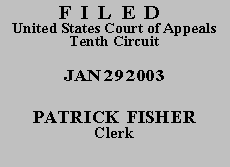

| LORETTA L. LUCERO,
Plaintiff - Appellant, v. GREG GREENLEE and JAY LONGLEY, personally and in their official capacities, Defendants - Appellees. |
|
Plaintiff Loretta L. Lucero filed this civil rights action under 42 U.S.C. § 1983, alleging that law enforcement officers Greg Greenlee and Jay Longley violated her constitutional rights by submitting materially false affidavits to support warrants to search her home, arresting her, and filing criminal charges against her without probable cause. She also asserted several state common-law claims. The parties consented to have a magistrate judge conduct proceedings in the case, including entry of final judgment. See 28 U.S.C. § 636(c). The magistrate judge entered summary judgment in favor of defendants on Ms. Lucero's federal claims, based on principles of qualified immunity, and dismissed her state claims. Ms. Lucero appeals the summary judgment ruling.
The parties are familiar with the underlying facts. Therefore, we do not repeat them here. This court "reviews issues surrounding the grant of summary judgment based on qualified immunity de novo, considering all evidence in the light most favorable to the nonmoving parties under Rule 56(c), Federal Rules of Civil Procedure." Olsen v. Layton Hills Mall, 312 F.3d 1304, 1311 (10th Cir. 2002). "Summary judgment is ultimately appropriate when there is no genuine issue as to any material fact and . . . the moving party is entitled to judgment as a matter of law." Id. (quotation omitted).
We have reviewed the record on appeal, as well as the briefs submitted by the parties. Applying the standards set out above, we conclude that Ms. Lucero has not raised a genuine issue of material fact relating to defendants' entitlement to qualified immunity. We AFFIRM the judgment for substantially the same reasons stated in the magistrate judge's March 1, 2002 Memorandum Opinion and Order.
Entered for the Court
Circuit Judge
*. This order and judgment is not binding precedent, except under the doctrines of law of the case, res judicata, and collateral estoppel. The court generally disfavors the citation of orders and judgments; nevertheless, an order and judgment may be cited under the terms and conditions of 10th Cir. R. 36.3.